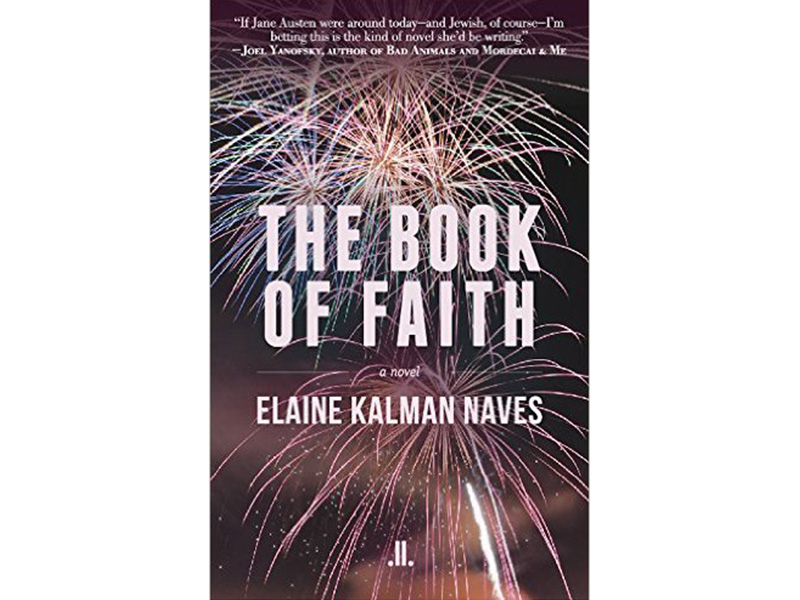As one of Elaine Kalman Naves’ characters in her new novel The Book of Faith observes: any resemblance to real persons, living or dead, is coincidental.
But anyone with a solid knowledge of the Montreal Jewish community will be titillated as they race through the pages to see the people they think they recognize.
It’s fiction, of course, and a great read even without an insider’s knowledge.
The Book of Faith (Linda Leith Publishing) is Kalman Naves’ debut novel, a departure from her non-fiction writing, which includes two memoirs, journalism, and radio documentary making. It’s clear she has drawn much from her own and her acquaintances’ life experiences, and had a lot of fun doing so.
While The Book of Faith has its satirical side, it also takes on weighty issues: female friendship, synagogue politics, the lingering effects of the Holocaust, immigration, marital discord, identity, secrets, mortality, inter-denominational rivalry – and that’s not an exhaustive inventory.
The author has a keen eye for personality types and a deft hand in making them real for readers.
The story opens in 1998 and ends early in the new millennium. Faith Rabinovitch, Rhoda Kaplansky and Erica Molnar are middle-aged women and intimate friends, especially the first two.
Faith, a child therapist and daughter of European parents, is president of Congregation Emunath (Hebrew for faith), a Reconstructionist synagogue, which just like Montreal’s is located in up-scale Hampstead. She’s the most grounded, happily married and the linchpin of the trio.
Rhoda is a teacher who comes from a well-off but troubled Westmount family and whose own marriage is a bit rocky.
Erica, born in Hungary to Holocaust survivors, is a literary columnist for the Gazette (Kalman Naves was born in Budapest in 1947 to survivor parents, and had the same job).
After the war, Erica’s doctor parents eschewed Judaism and became Christians, warning their two daughters never to tell anyone of their heritage.
Erica, as a young woman, converted to Judaism and perhaps has the truest faith of the trio, but still takes a detached view of Montreal’s tight-knit Jewish community. She is currently separated from her previously Orthodox husband and looking for love in all the wrong places – with a synagogue officer with a weakness for a certain vice and with her non-Jewish editor.
She has also had a health scare.
The novel opens with a funeral – someone is going to die soon, we know. Not to give too much away, but this death is sudden and shatters everyone’s faith in the order of things.
There are two main sub-plots in this fast-paced tale. In the first, Erica reluctantly agrees to write the memoir of a wealthy survivor member of Congregation Emunath, the boorish Melly Darwin. The former Melech Meyer Wiener from a Polish town wants to be immortalized as a hero; Erica is too faithful to the truth to oblige.
Kalman Naves’ portrayal of this self-made man and his crass wife, Bubbles, and their adult children is priceless.
The second sub-plot is Rabbi Nate Kaufman’s relentless campaign to build a new, grander synagogue to replace Congregation Emunath’s unpretentious house of worship. He needs $5 million-plus to erect the Jerusalem stone monument he envisions, and privately believes it is his due at this point in his career.
The membership is not so ready to cough up the money, even those few with the means, despite his eloquent imploring. To Rabbi Kaufman’s consternation, an ultra-Orthodox group constructs a temple worthy of Solomon across the street. (Remember, this is all fiction.)
Kalman Naves has done a commendable job of evoking what it was like to be Jewish in Montreal at the turn of the 21st century. She also reminds readers of whatever faith, or lack of it, of the randomness of our existence and how fleeting it is.
